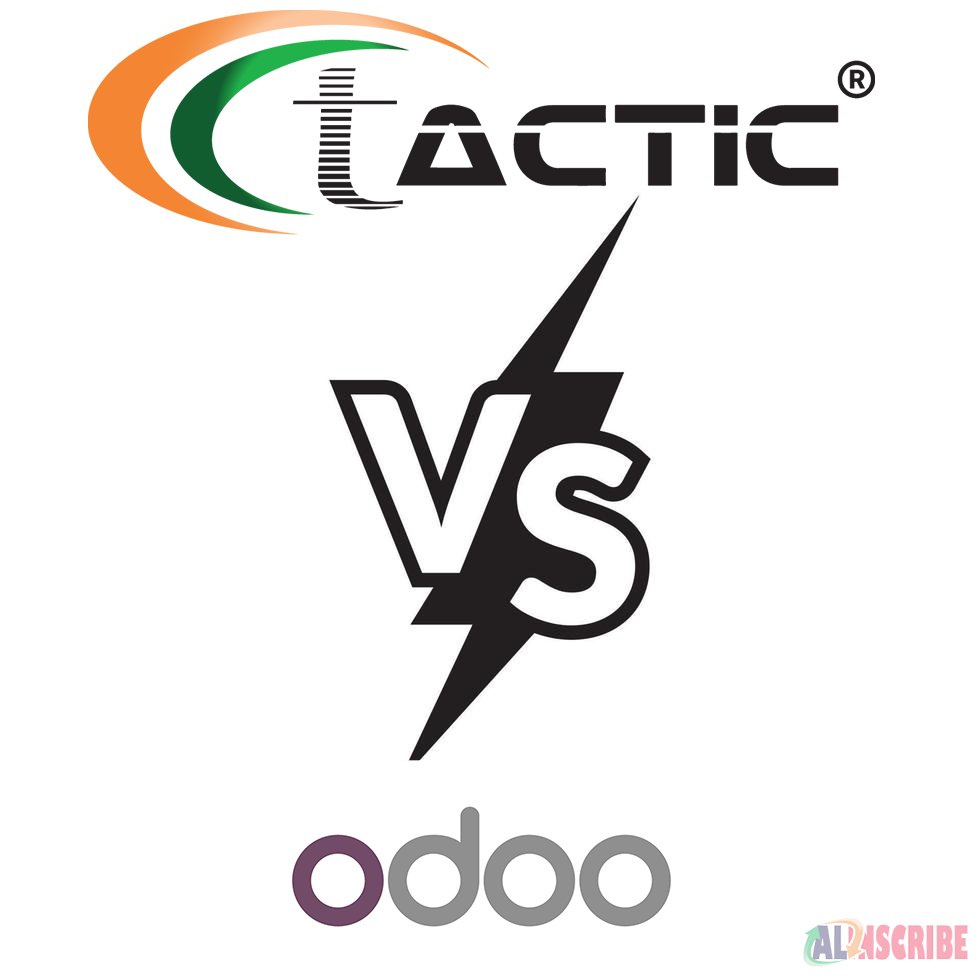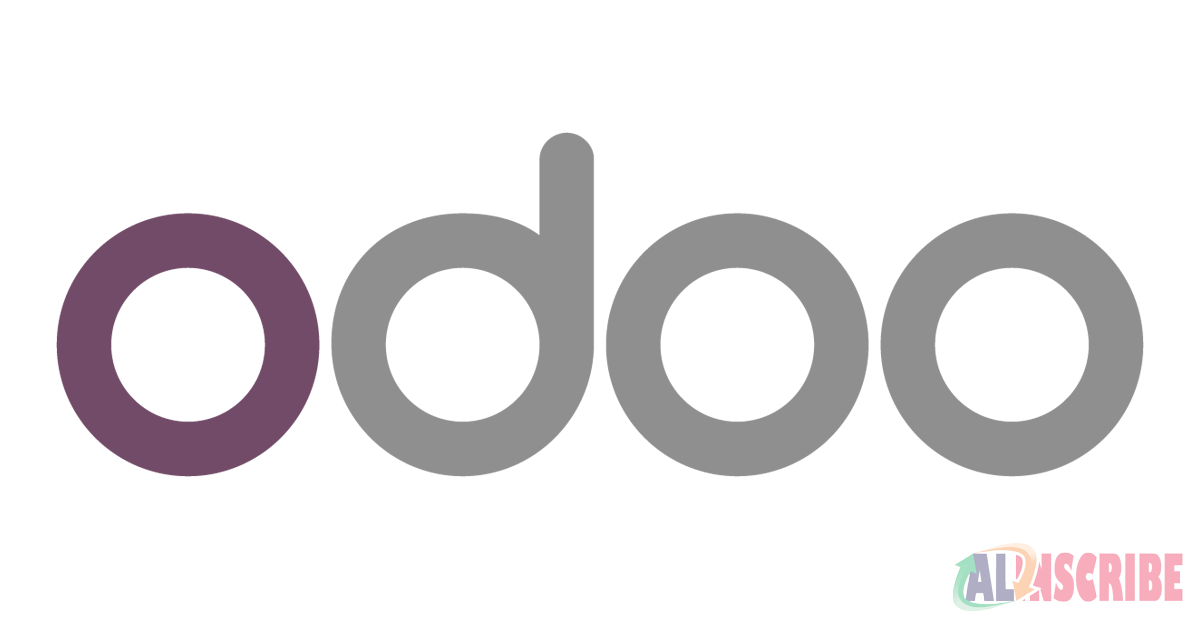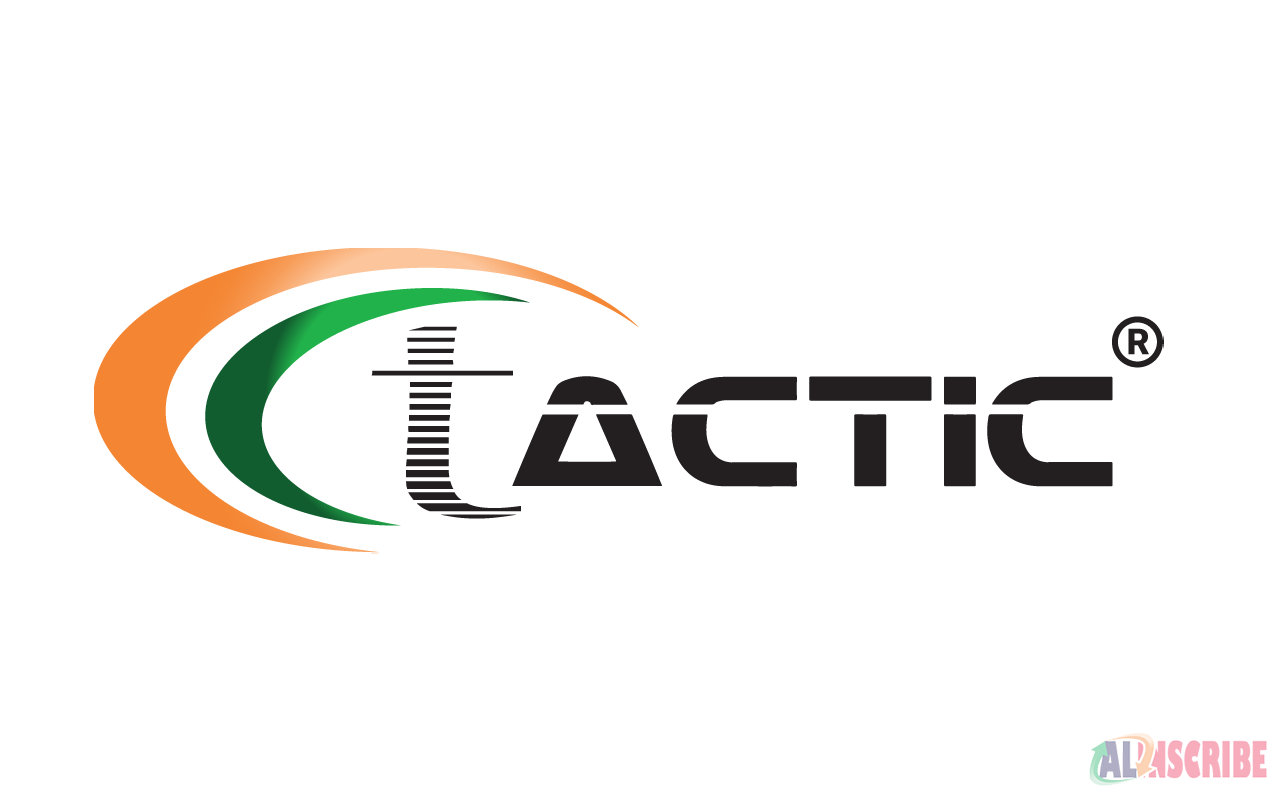What Are The Main Differences Between Odoo CRM And Tactic ERP CRM

The requirements that persist within a company or a business organization makes it important for them to implement an ERP and CRM. ERP and CRM systems can efficiently centralize several business processes while making it easy for the users to access any data at any moment.
However, the selection of the right ERP and CRM system is a crucial yet quite tricky part. As there are a huge number of ERP and CRM solutions already available in the market, it can be tough to carefully choose the most appropriate one for you. But if you want a resolution of this issue, you can go with reviews, listings and comparisons.
We have the same agenda in today’s article. In this article we are going to compare two of the most efficient CRM systems, which are Odoo CRM and Tactic ERP & CRM. Keep reading this article to know which software solution can be the best choice for your business.
Introduction to Odoo CRM
Odoo CRM is considered as a customer-centric tool that is capable of supporting all the sales related needs of a company. The software solution helps you in tracking leads, gaining accurate forecasts, managing customers and so on.
The best thing about Odoo is that it is an open source software, which means it is completely free. The software has the ability of mining leads from the company database and applying those on the application dashboard, so that the sales team have direct access to those.
There is also an advanced grouping and filtering option, which reduces time needed for segmentation and appropriation. The set of modules that Odoo boasts is capable of managing everything related to a company’s sales and marketing. The CRM is also easily accessible, making is one of the most popular and one of the most appropriate solutions for your business.
Odoo CRM Modules
CRM
This is the core module that manages customer interactions and leads. It includes features for lead management, opportunity tracking, and customer communication.
Sales
The Sales module focuses on managing the sales process. It includes tools for managing quotations, sales orders, and invoices. You can track sales targets, sales orders, and customer invoices within this module.
Contacts
This module is designed for managing your contact database. It allows you to organize and store information about your customers, suppliers, and other business contacts.
Leads
The Leads module is often used to manage potential customers who have shown interest in your products or services but have not yet been qualified as opportunities.
Opportunity
This module is dedicated to managing sales opportunities. You can track the progress of opportunities through various stages of the sales pipeline.
Email Marketing
Odoo includes a module for email marketing, allowing you to design and send marketing emails to leads and customers. It often integrates with other Odoo modules to track the effectiveness of email campaigns.
Events
The Events module helps you organize and manage events such as conferences, trade shows, or webinars. It can be integrated with the CRM module to track leads generated from events.
Phone Calls
Some versions of Odoo include a Phone Calls module that allows you to log and manage phone calls related to your CRM activities.
Reporting
Odoo CRM typically includes reporting tools to help you analyse sales performance, pipeline status, and other relevant metrics.
Dashboard
The Dashboard module provides a visual overview of key performance indicators (KPIs) and metrics related to your CRM activities.
Sales Teams
This module enables you to organize your sales team, define roles, and assign responsibilities.
Documents
The Documents module allows you to attach and manage documents related to leads, opportunities, and customer interactions.

Benefits that can be gained by implementing Odoo CRM
Using Odoo CRM means signing up for a plethora of benefits. Odoo is a dedicated CRM (Customer Relationship Management) system, which is why it offers many distinct features alongside a number of unique benefits. Some of those benefits are listed below,
Advanced leads management and tracking
Managing leads are a crucial part of any business. Be it B2B or B2C, your customers will be the one to decide your company’s future. Hence, managing the potential customers or leads appropriately is required to be completed very dedicatedly. This is something Odoo CRM can help you with.
Odoo allows the users to track and collect information related to the leads all within one platform. This eliminates the amount of time needed for lead generation and follow-up. The process of handling all the leads within a single platform also levels up engagement ratio of the leads.
Better customer engagement resulting in better customer relationship
Maintaining a good relationship with the customers should be one of the topmost priorities of any company. Maintaining a good relationship with the customers is one of the most effective ways of understanding their preferences, retaining their trust and making them keep coming back for your products or services.
Odoo CRM allows your team to directly interact with the customers via chat or call from the CRM system itself. This reduces respond time and strengthen the relationship between the customer and your company. this enhances your customers’ experience in dealing with your company and retains then without many difficulties.
Planning appointments and activities easily
Odoo CRM’s pipeline module allows you to create managing activities and appointments with your customers and vendors. Hence, you can easily debunk the risk of losing track of all the appointments and activities that are due for the day or the week or even the month. Thus, you get to eliminate risks of disappointing the customers or leads without facing many issues.
Management of lost opportunities
Managing lost opportunities can be done by tracking down the possible reasons behind losing those. You can configure lost reasons within the CRM and create or edit reasons seamlessly. This will help you to track your shortcomings while implementing effective strategies to combat those for better results. You can also retrieve lost opportunities by applying new growth strategies.
Introduction to Tactic ERP & CRM
Tactic ERP & CRM is an all-in-one cloud-based SaaS that is integrated with 75+ modules comprising of several ERP and CRM features to support all day-to-day activities of an organization.
It is a comprehensive solution for several business related issues your company has to go through on a daily-basis. Brought in by ALSOFT, Tactic was first introduced in 2022 and it instantly rose to popularity among local businesses. The company, now, is aiming to expand its customer base beyond global boundaries and officially launch it very soon.
The CRM module of Tactic ERP & CRM comprises of nine different features. All of these features have been developed considering several CRM activities happening in a company on a daily-basis. These features are explained in the next section of the article.
Tactic ERP & CRM’s CRM module
Third Party Module
Tactic ERP & CRM offers a comprehensive third-party module that empowers users to create an unlimited number of third-party entities. This versatile module allows for segmentation of third parties into three categories: new customers, vendors, and prospects. Upon creation, the ERP system automatically assigns unique customer codes to newly added customers, vendors, or prospects. The flexibility extends to the ability to modify these codes at any time.
For B2B companies, the third-party module facilitates the addition of other businesses as customers, complete with the option to incorporate their company logos for easy identification. Managing the lifecycle of these third parties is simplified to a single click, making it effortless to update their status. Furthermore, users can customize the preferred language, define discounts, and set prices – all within the same intuitive interface. To accommodate diverse customer requirements, extra fields can be seamlessly added.
Quotation Module
The Quotation module streamlines the creation of commercial proposals or quotations by simplifying the incorporation of data into predetermined fields. As proposals are generated, Tactic automatically updates the agenda module, providing users with a consolidated view that facilitates easy tracking. The lifecycle of commercial proposals can be managed by changing their status, with options including draft, validated, signed, or refused. Notably, even already-signed or refused proposals can be reopened with a single click. The module supports the export of quotations, and online signatures can be seamlessly implemented.
Sales order Module
The Sales Order module enhances the customer order process by allowing users to create detailed sales orders. These orders encompass vital details such as customer contact information, product quantity, pricing, terms, and conditions. Importantly, sales orders can be converted into invoices, streamlining the entire invoicing process. Similar to other features, sales orders can be defined based on their lifecycle. However, it's crucial to note that once a sales order is validated, it cannot be deleted.
Shipment Module
The Shipment module offers a convenient way to create shipments directly from invoices, enhancing the overall user experience within the CRM module of the ERP solution. This feature allows for the easy management and tracking of shipments directly within the same interface. Users also have the flexibility to reopen shipments as needed.
Contract Module
The Contract module simplifies the management of business contracts within the Tactic ERP & CRM solution. Users can effortlessly create contracts by populating the predetermined fields, and these can be modified while still in the draft format. Once contracts are validated, they become immutable – they cannot be modified or deleted. Additionally, the module supports the management of subscriptions directly associated with customers and vendors, and quotations can also be handled from this central hub.

Intervention Module
The Intervention module plays a crucial role in addressing urgent requests that require immediate attention. Valued customers or members with critical requests can have their interventions managed seamlessly through this module. The one-step process of creating an intervention involves incorporating essential information into predetermined fields. Users also have the option to attach various files to interventions as needed.
Tickets Module
The Tickets module serves as a comprehensive customer interaction tracker, documenting all queries or issues throughout the customer journey. Customers can create tickets through both internal and external interfaces, and businesses can easily track and manage these from the dedicated ticket module.
Knowledgebase Module
The Knowledge Management module streamlines the organization-wide availability of critical information, reducing the time needed to resolve internal and customer queries. Knowledge base articles can be linked to tickets, providing customers with access to relevant information when needed.
Partnership Module
Lastly, the Partnership Management module empowers businesses to efficiently manage relationships with customers, vendors, and other third parties. The module facilitates the creation of new partnerships by populating predetermined fields, and these partnerships can be validated, approved, or terminated with just a few clicks, ensuring a seamless process.
Comparison between Odoo CRM and Tactic ERP & CRM
In this section of the article, we are going to compare Odoo CRM and Tactic ERP & CRM along with the features, pricing and other important aspects. The comparison is presented below,

| Best Use For | Odoo CRM | Tactic ERP & CRM |
|---|---|---|
| Business Size | Startups, small, medium and large companies | Startups, small, medium and large companies |
| Business Type | Odoo is the best for B2B companies | Tactic is suitable for both B2B, B2C companies |
| Industries | Manufacturing, retail, e-commerce, healthcare, logistics, and education sectors. | Tactic is a suitable choice for every industry |
| Core Features | Odoo CRM | Tactic ERP & CRM |
| Human Resource Management (HRM) | ||
| Customer Relationship Management (CRM) | ||
| Vendor Relationship Management (VRM) | ||
| Financial Modules (Accounting/Treasury) | ||
| Product Management (PM) | ||
| Projects/Collaborative work Management | ||
| Electronic Content Management (ECM) | ||
| HRM Modules | Odoo CRM | Tactic ERP & CRM |
| User module | ||
| Members Module | ||
| Leave request management Module | ||
| Expense Reports Module | ||
| Recruitment Module | ||
| CRM Modules | Odoo CRM | Tactic ERP & CRM |
| Third Party module | ||
| Sales Order Module | ||
| Shipment Module | ||
| Contract Module | ||
| Intervention Module | ||
| Tickets Module | ||
| Knowledge management Module | ||
| Partnership management Module | ||
| VRM Modules | Odoo CRM | Tactic ERP & CRM |
| Vendor Module | ||
| Vendor Commercial Proposal Module | ||
| Reception | ||
| Incoterms Module | ||
| Financial Modules | Odoo CRM | Tactic ERP & CRM |
| Customer Invoice Module | ||
| Vendor invoice module | ||
| Tax Module | ||
| Salaries Module | ||
| Loans Module | ||
| Donation Module | ||
| Bank and cash module | ||
| Payment by credit transfer Module | ||
| Payments by Direct Debit Module | ||
| Margin Module | ||
| Accounting simplified Module | ||
| Accounting double entry Module | ||
| Product Management (PM) | Odoo CRM | Tactic ERP & CRM |
| Product Module | ||
| Services Module | ||
| Stocks Module | ||
| Product Lots Module | ||
| Product Variants Module | ||
| Bills of Material Module | ||
| Manufacturing Order Module | ||
| Projects/Collaborative work Management | Odoo CRM | Tactic ERP & CRM |
| Projects or Leads Module | ||
| Events/Agenda Module | ||
| Resources Module | ||
| Event Organization | ||
| Electronic Content Management (ECM) | Odoo CRM | Tactic ERP & CRM |
| DMS/ECM Module | ||
| Miscellaneous Modules | Odoo CRM | Tactic ERP & CRM |
| Tags and Categories Module | ||
| Multicurrency Module | ||
| Bookmarks & Shortcuts Module | ||
| Barcode Module | ||
| Inter-modules Workflow Module | ||
| Data Imports module | ||
| Data Exports Module | ||
| Poll, Survey or Vote Module | ||
| Website Module | ||
| Point Of Sale (TakePOS) | ||
| Social Networks Module | ||
| Notification Module | ||
| Mass Emailing Module | ||
| Email Collector Module | ||
| Web services REST API Module | ||
| Web service SOAP API Module | ||
| LDAP Module | ||
| Oauth Module | ||
| External Site Module | ||
| FTP module | ||
| GeoIPMaxmind Module | ||
| PayBox Module | ||
| Paypal Module | ||
| Stripe Module | ||
| ClickToDial module | ||
| One Click Printing | ||
| Receipt printers Module | ||
| Mailman and SPIP Module | ||
| Scheduled jobs Module | ||
| Specifications | Odoo CRM | Tactic ERP & CRM |
| Deployment | Odoo is available to be deployed as both on-premises software and SaaS. There's also Odoo.sh, which is a managed hosting platform and a perfect solution for businesses needing development flexibility. | Tactic is available as a SaaS and an on-premises software as well. And the best thing about is that the users do not have to opt for different versions of Tactic for that. |
| Supported Device | Any smart device with an internet connection | Any smart device with an internet connection |
| Supported Platforms | Any browser | Tactic can be accessed via any secure browser |
| Support and Training | Odoo CRM | Tactic ERP & CRM |
| Support | Odoo offers customer support via mails, calls and community posts. | Tactic offers support through email, call, chat and a remote assistance. |
| Training | Odoo has an education program that is meant for both developers and normal customers. There are also tutorial videos available to enhance further training. | Tactic wiki, tutorial videos, One-on-one training are offered by Tactic |
| Security | Odoo CRM | Tactic ERP & CRM |
| Security Features | Backups / Disaster Recovery, Database Security, Password Security, Staff Access, System Security, Physical Security, Credit Card Safety, Data Encryption, Network defense, Software Security, Independent Security Audits, OWASP Top Vulnerabilities, etc. | Regular updates, 2FA (2 Factor Authentication), SSL (Encrypted Data Communication between client and server), Backups / Disaster Recovery, Database Security, Password Security, Staff Access, System Security, Physical Security, Credit Card Safety, Data Encryption, Network defense, DOS and Brute force rate Mitigation, Automatic Backups,PHP safe_mode, SQL injection protection, XSS injection protection (cross site scripting), SSRF protection, CSRF (Cross Site Request Forgery) protection, Centralized entry code to check permissions, Optional CAPTCHA in log-in page to restrict robots, Anti-virus check-up sessions on every uploaded file. |
| Framework | Odoo CRM | Tactic ERP & CRM |
| Programming Language | Odoo CRM primarily uses Python | Tactic ERP & CRM primarily uses PHP |
| Technology | Odoo CRM | Tactic ERP & CRM |
| Integration with E-commerce Platforms | Odoo CRM promotes integration with a large range of third-party software and E-commerce platforms. | Tactic ERP & CRM can be integrated with E-commerce platforms via API very conveniently. |
| Integration with IoT Devices | Odoo CRM can be integrated with IoT devices | Tactic ERP & CRM can be integrated with IoT devices. |
| Artificial Intelligence (AI) and Machine Learning (ML) Capabilities | Odoo CRM actively invests and promotes their AI/ML development. | Tactic ERP & CRM is looking forward to establish AI/ML within the software in near future. |
| Low-Code/No-Code Development Platform | Odoo CRM can be considered as a low-code, no-code platform. It has a separate service called Odpp studio, which offers no-code customization. | Tactic ERP & CRM doesn't require any kind of programming for minimal changes. The users can easily add, delete any parameters, attributes directly from the setup, which makes it a no-code platform. |
| Sustainability Tracking and Reporting | Available | Not Available |
| Compliance Management Features | Available | Can be customized within the software |
| Risk Management Features | Systematic risk identification, workflow for risk, risk assessment, action approval, Multilevel configurable approval and rejection notification, Standard and customized risk management reports, etc. | The users are allowed to take back-up of their software data via admin access. Any other risk management is performed by the parent company. |
| Service Level Agreements (SLAs) for Cloud Offerings | Odoo CRM offers Service Level Agreements (SLAs) for Cloud Offerings | Tactic ERP & CRM offers Service Level Agreements (SLAs) for Cloud Offerings |
| User Roles and Permissions Management | Odoo CRM allows the users to add roles and responsibility to limit access | Tactic ERP & CRM allows the users to add roles and responsibility to limit access |
| Search Functionality | Search functionality is available | Search functionality is available |
| Collaboration Tools | Collaboration tools are available | Collaboration tools are available |
| Document Management Integration | Not Available | Document management integration is available. The users can add and manage their document tree within the software very easily |
| Pricing | Odoo CRM | Tactic ERP & CRM |
| Basic Plan | One App Free Plan offers unlimited users for free if it's being hosted with Odoo online. | $9/Month/User |
| SME Plan | $31.10 - $38.90 per user per month | $19/Month/User |
| Enterprise Plan | $46.70 - $58.40 per user per month (billed annually) | $27/Month/User |
| Free Trial | Available | Available |
| Freemium Version | Available | Available |
Analysis
The comparison table suggests that both of Odoo CRM and Tactic ERP & CRM have their individual features, which support all the need of the customers properly. However, analyzing which one is better than another is quite tough to perform.
Odoo CRM is an open-source software solution that is free to use with limited features. Tactic ERP & CRM is a paid SaaS that is vaster than Odoo. Tactic’s feature set might be less in number than that of Odoo, but the Tactic’s modules are more prominent and work better. For understanding better, you can try Tactic Demo.
Now if we talk about the pricing then Odoo is free, which is certainly beneficial for start-ups. However, they do not provide access to every feature for the free version. Whereas Tactic ERP & CRM offers up to three months free. You can contact ALSOFT for detailed discussion on the same.
Article Comments
Similar Articles
Articles Search
Sponsor
There are zero sub-categories in this parent category.
There are zero sub-categories in this parent category.
There are zero sub-categories in this parent category.
















